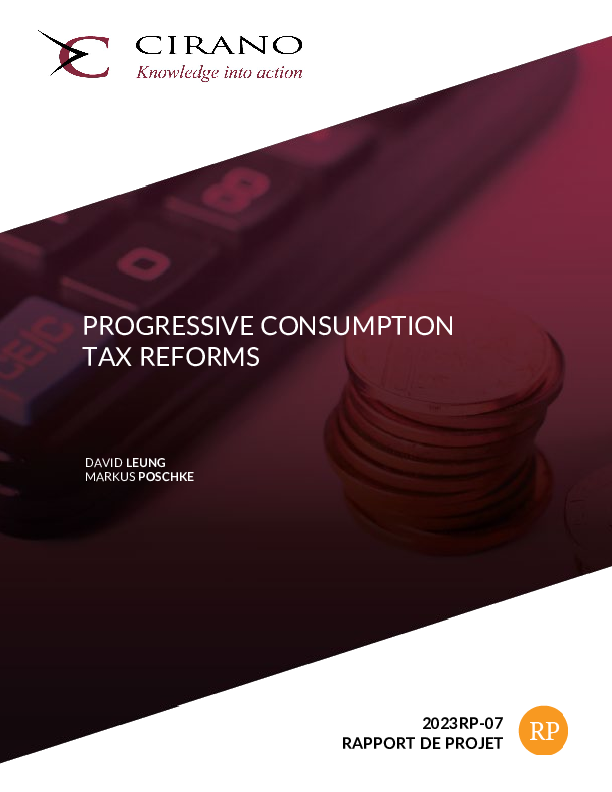Progressive consumption tax reforms
We study the effects of tax reforms in a heterogeneous agent overlapping generations life cycle model with idiosyncratic risk in capital and labour income and a rich tax system. The model replicates empirical joint distributions of income, wealth and tax payments well. In an economy with highly progressive income taxes, a revenue-neutral shift of the tax burden from income to consumption taxes increases saving and output, while also reducing inequality. It particularly benefits those with low wealth relative to income. It tends to harm retirees, who have high wealth relative to income. In contrast, an increase in the progressivity of income taxes also reduces inequality, but implies lower saving and output.




